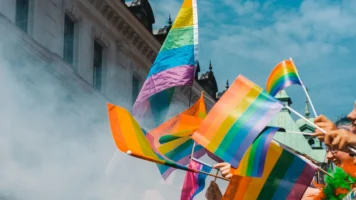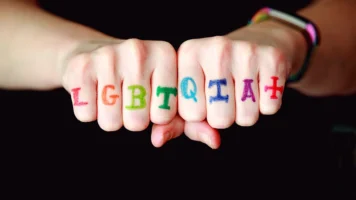When it comes to health and wellness, the LGBTQ community often feels marginalised. In fact, one in every eight LGBTQ people have experienced some form of unequal treatment in the UK because of their identity. What’s more, one in every seven LGBTQ people have avoided treatment for fear of discrimination. While navigating the healthcare system may be more challenging, it may be necessary in an emergency situation. When you’re faced with a situation where you may need medical attention but can’t provide your own medical history, it’s important for medical personnel to understand your individual needs.
Medical warning tags are worn by a number of people to provide information about themselves when they’re not in a position to do this. They may be worn by individuals to note their allergies, health conditions such as having a pacemaker, or provide any other information that’s essential. These tags can save lives, which is why LGBTQ people should consider wearing them as well.
Complex Medical Needs
Medical surveys indicate that LGBTQ individuals are more likely to rate their health as poor and have more chronic conditions than heterosexuals. This means that regardless of any other needs, you may want the medical team to understand that your care is going to be more complex in many cases. Wearing medical warning dog tags allows medical professionals to understand that they need to review your medical history and have a thorough understanding of your complex needs before providing treatment.
Improved Quality of Care
Individuals who wear these tags are more likely to receive (suitable) emergency treatment when a responder gets to the scene. This is true regardless of your identity as an LGBTQ person. The information shared on the alert may help personnel provide treatments which are not only effective, but safest, given your health profile. You’re also less likely to be misdiagnosed when you’re out of immediate danger and taken to a hospital. Having critical information at hand can help rule certain diagnosis and in turn, avoid future complications.
Improved Bystander Response
Medical ID tags are incredibly important for medical personnel, but they may also be helpful for a non-medical individual who finds you in distress. If you’re in an accident or a situation where you can’t advocate for yourself, the person helping you may not be a trained professional. However, if they have some idea of your complex needs, they can provide better assistance and help advocate for your needs when a medical professional arrives on the scene.
While having a medical warning tag isn’t essential, LGBTQ people may want to consider having them made. In addition to this information, they can also add information about their allergies or any other pertinent information that could be beneficial in an emergency. These tags are usually discrete so they can be customised and worn without negatively impacting your style or lifestyle.




